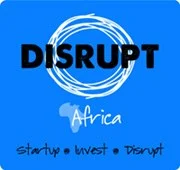12 African startups to watch in 2018

NORTH AFRICA
WaystoCap
Moroccan B2B trading platform WaystoCap takes the first spot on our list of startups to watch.
WaystoCap allows African businesses to buy and sell products – enabling them to discover products, verify them, obtain financing and insurance, manage their shipments, and ensure payments security.
In February, the startup was one of only two African startups selected to join Silicon Valley-based Y Combinator, where it received three months’ intensive mentoring and training as well as US$120,000 in funding. It performed so well, the startup secured a sizeable funding round on graduating the programme, from investors including Y Combinator itself, Battery Ventures and other parties.
With a satellite office now open in Benin, WaystoCap is set for West African expansion in 2018 – and we’ll be watching closely.
Vendo.ma
Also from Morocco, Vendo.ma is busy racing for monetisation having perfected its platform and onboarded plenty of customers.
Vendo.ma allows users to search a database of more than 200,000 products from more than 100 popular e-commerce websites and physical shops.
The startup’s algorithm easily identifies the user’s needs, and gives them the ability to refine their search by adding tags to their searches, set a maximum or minimum price, and locate shops on an interactive map.
Having seen strong uptake – with over 100,000 users each month – and having secured a MAD2.7 million (US$265,000) seed round early this year, the startup is focusing on rolling out its monetisation strategy, and we feel 2018 will be a big year.
FilKhedma
Egyptian startup FilKhedma has been around for a while, but we think 2018 will be a big year as it sets out to expand its market presence on the back of recently secured funding.
Launched in 2014 and currently serving Cairo, FilKhedma is an online marketplace for home maintenance and improvement services such as plumbing, carpentry, electricity, air conditioning, painting and appliances.
The startup announced an undisclosed funding round from Algebra Ventures and Glint in September, which comes after raising a first round from KiAngel last year.
With the new funding and partners on board, FilKhedma is busy revamping its technology ready to expand its reach to new geographies and grow its user base, as well as increasing its operations, development and marketing teams. We’re excited to see the results across 2018.
EAST AFRICA
Sokowatch
Our first East African pick is Kenya’s Sokowatch, which is giving small businesses across East Africa a boost with its ordering and delivery network for small shops.
Launched in 2013, Sokowatch is increasing the availability of everyday consumer goods by allowing small shops to place orders from various multinational suppliers at any time via SMS. Orders are then processed through Sokowatch’s system to notify nearby delivery agents, who then deliver the requested orders to shops within 24 hours.
The solution is taking off like wildfire – having reached the milestone of supplying 5,000 shops in Nairobi, Sokowatch expanded to Dar es Salaam this year, and snapped up 1,000 clients within three months of expanding. Further launches are planned for Mombasa, Kampala, and Kigali.
We’re not the only people to notice Sokowatch – the startup was named one of three winners of the Innotribe Startup Challenge in May; made it onto the World Bank’s XL Africa accelerator in August; and secured investment in October. What’s next?
Sky.Garden
Kenyan startup Sky.Garden launched to the general public in March this year, after two years of development and beta testing.
Sky.Garden is a software-as-a-service (SaaS) platform for mobile commerce that is built specifically for African businesses in the early days of adopting online transacting, providing an easy-to-use online marketplace allowing informal traders, SMEs and established businesses to sell their products.
The public response has been strong, with the startup charting 25 per cent month-on-month growth in order volumes.
The company was recently selected as one of 12 startups to join the Norway-based Katapult Accelerator, a three month programme that offers startups hands on assistance and up to US$100,000 in funding. We’re looking forward to seeing the results.
Intelworld
Uganda’s Intelworld has quietly been working away since 2014, but we feel 2018 will see this startup really take off.
Intelworld has developed a mobile commerce platform called Xente, which allows customers from all over the world to buy products from Ugandan merchants, with options to pay now, later, or in installments with cards or mobile money.
The platform is used by over 50 Ugandan businesses who deal in digital products like airtime recharge, bill payments, TV subscriptions and tickets, and has enabled them to sell to over 3,000 customers worldwide to date.
The plan for 2018 is to extend the service to merchants selling physical products – and to bring onboard investors to help push the startup through a rapid growth phase.
We look forward to seeing Intelworld come into its own in 2018.
SOUTHERN AFRICA
The Sun Exchange
If ever a startup combined multiple cutting-edge techs into one impressive solution, it’s South Africa’s The Sun Exchange.
The Sun Exchange allows users to crowdfund solar projects in Africa using bitcoin, increasing transparency and reducing the cost of the cross-border transactions.
It’s been a busy year – The Sun Exchange was named the overall winner of the Blockchain Challenge hosted by the Smart Dubai Office, raised US$1.6 million in funding, and expanded abroad, after being selected by Architaly Green Energy DMCC to finance one megawatt (MW) of rooftop solar facilities for top-tier educational institutions in Dubai. We’ll be keeping a keen eye on what’s next for this startup over the coming year.
hearX
South African startup hearX Group is a prime example of how technology is revolutionising access to healthcare, and the company’s work is finally starting to get the recognition it deserves.
Developed at the University of Pretoria by Prof De Wet Swanepoel and Dr Herman Myburgh in 2013, the hearX Group launched as a startup in 2015 with its first product hearScreen – a smartphone app that detects hearing loss and links patients to health services.
Since then hearX has launched a range of other m-health and cloud-based health solutions, offering decentralised, low-cost access to ear and hearing care that have reached more than 70,000 people so far.
The startup has raised over US$2.8 million in investment so far, and in August smashed through its Indiegogo crowdfunding target – so it looks like support for hearX Group is finally picking up pace. We anticipate great things from this startup in 2018.
Tupuca
Things are picking up for Angola’s Tupuca, and we plan to keep an eye on them.
Founded in 2015, Tupuca claims to be Angola’s first food delivery platform, allowing users to order from multiple restaurants straight from their smartphone. The company currently has 120 restaurants signed up to the platform, and over 20,000 users.
A fun fact – last year, Tupuca competed but failed to place at the Angolan leg of the Seedstars World startups competition – so what did the team do? They returned to compete again in 2017 of course – and this time they won.
Having fine-tuned its solution, the startup is looking to scale up to add grocery and pharmacy deliveries; and expand to new markets. As such Tupuca is looking for investment – and we have no doubt they’ll get it in 2018.
WEST AFRICA
Farmerline
Ghana’s Farmerline is top of our West African picks this year. The startup connects small-scale farmers to information services, products and resources to improve their incomes; and has over 200,000 farmers registered to date.
It’s been a busy year, filled with recognition. In June, Farmerline was one of three startups to win the King Baudouin African Development Prize, taking home EUR75,000 (US$84,000) each in prize money. The company was also selected to join Switzerland-based multi-corporate, zero-equity Kickstart Accelerator – and went on to be named second-best startup in the food vertical at the end of the programme.
With plans to open a Zurich-based office next year, we foresee an exciting year for Farmerline in 2018, and will be following their work carefully.
PayPass
Nigerian online ticketing startup PayPass has witnessed impressive growth since its launch in May of this year, with over 2,400 people using the platform and more than 60 events listed.
PayPass has designed a portal where users can create their own events, share them on social media and have their audience register and pay for tickets, with payments processed via third-party payment processor Paystack. The platform is initially focusing on college events in Nigeria.
Self-funded to date, the startup is looking to raise US$250,000 to build out a team and HQ, as well as launch an advertising push.
While it’s early days for PayPass, Disrupt Africa is impressed by the early progress and we have a good feeling about what’s in store for this team.
Releaf
Also from Nigeria, agri-tech startup Releaf is fuelling sales of agricultural commodities with its digital trading marketplace.
The concept behind Releaf revolves around building trust between various stakeholders in agribusiness, allowing registered sellers to bid for verified buyer contracts.
The startup came out of stealth mode in August, announcing it has already verified over 600 agribusinesses and facilitated over 100 connections. With the platform now publicly available, Releaf hopes to onboard 20,000 businesses over the next 12 months.
And we’re not the only ones who think they’ll make it – the startup was selected to join Silicon Valley-based accelerator Y Combinator, bagging itself US$120,000 in funding as a result.
Source: Disrupt Africa

Disrupt Africa is a one-stop-shop for all news, information and commentary pertaining to the continent’s tech startup – and investment – ecosystem. With journalists roaming the continent to find, meet, and interview the most innovative and disruptive tech startups, Disrupt Africa is a true showcase of Africa’s most promising businesses and business ideas.
Our readers can keep up-to-date with the quirky world of tech hubs and accelerator programmes; and our reporters provide live coverage of the all-important tech and entrepreneurship events across Africa.
For our startup, entrepreneur, and investor friends alike, our mission is to provide practical information and advice from across Africa’s varied vibrant markets, and to promote engaged and thought-provoking discussion about the exciting ecosystem we belong to.
Go to: http://disrupt-africa.com/









